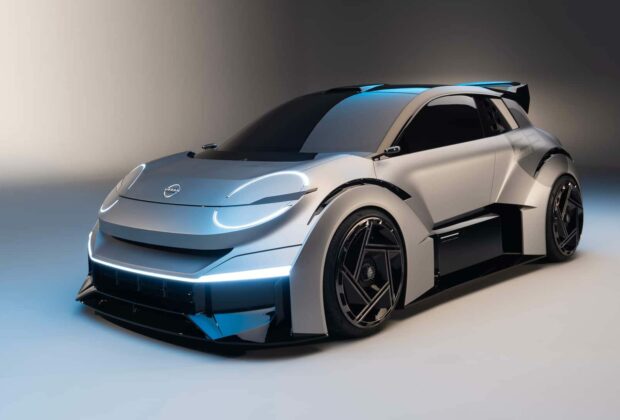In order to meet its goal of selling entirely EVs in the region by 2030, Nissan has stated that starting today it would only introduce completely electric vehicles in Europe.
“EV is the best form of transportation. There is no turning back now that more than a million customers have joined our adventure and enjoyed a Nissan electric vehicle, according to Nissan President and CEO Makoto Uchida.
For us to achieve carbon neutrality, which is essential to our Ambition 2030 objective, EVs driven by renewable energy are essential. Nissan will transition to an all-electric fleet by 2030 in Europe because we feel it is the moral thing to do for our company, our clients, and the environment.
Nissan has previously announced the production of two new battery-electric cars for Europe, one of which will be built at the same UK facility that presently produces the Leaf EV in Sunderland.
The carmaker did not offer any brand-new information about the Leaf’s replacement, an electric SUV that has already been confirmed. The business declared in May that starting in 2026, production of the Leaf replacement would take place at the Sunderland factory.
The Nissan Chill-Out study provided a glimpse into the next electric SUV in November 2021, the same month the automaker unveiled its long-term electrification plan known as Nissan Ambition 2030. The crossover coupe study, dubbed a “near-future EV,” was constructed on the CMF-EV platform and equipped with the Ariya’s e-4ORCE dual-motor AWD engine.
The second model is a brand-new electric vehicle that will replace the Nissan Micra as the entry-level model for the company. Along with the Renault 5, the EV will be produced by Renault in Douai, France.
As a sporty urban electric vehicle earlier today, Nissan introduced the Concept 20-23 in London, calling it “an exterior model only.” This description and the headlamp and taillight designs suggest that the idea is looking at a three-door version of the forthcoming Micra EV, which was hinted about in 2022.
Nissan increased their EV objectives earlier this year and committed to releasing 19 new battery-electric cars by 2030. It further stated that 98 percent of its sales in Europe by the 2026 fiscal year ending on March 31, 2027, would be electrified, including both fully electric and hybrid vehicles.
The business also disclosed ambitions to use cobalt-free technology to reduce the price of EV batteries by 65 percent by the end of the current fiscal year (2028). By the end of the fiscal year 2028, Nissan hopes to introduce its first all-solid-state batteries (ASSB)-powered electric vehicles.
Nissan will be in line with alliance member Renault, whose primary brand will likewise be all-electric by 2030, when it becomes entirely electric in Europe.








